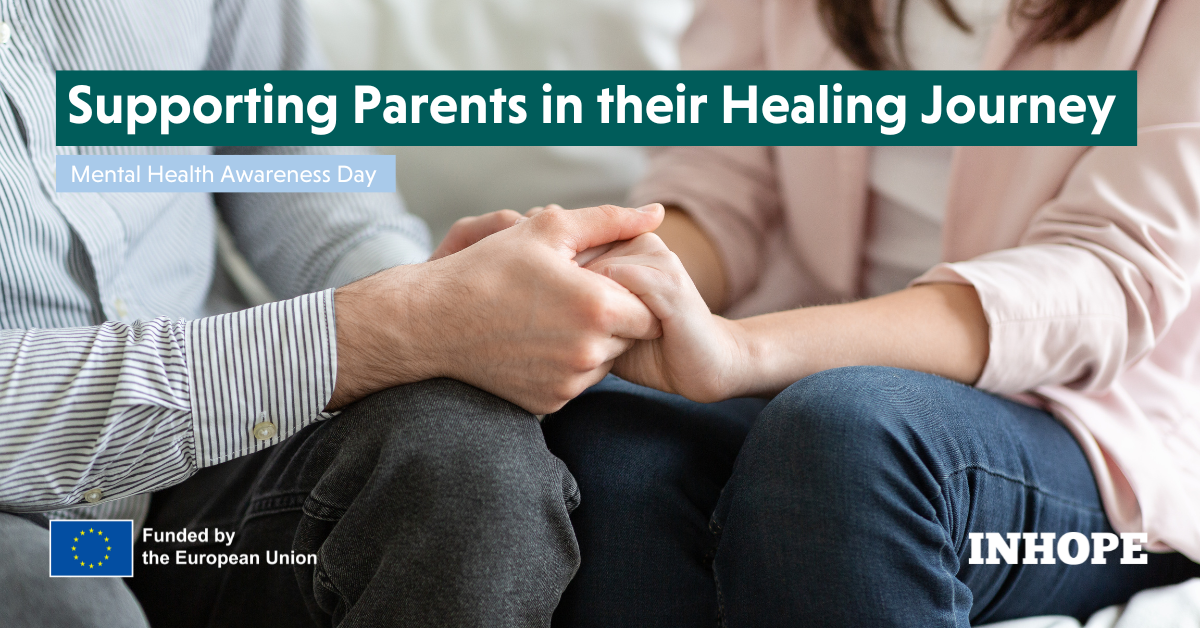Article
Educational Articles
Supporting Parents of Child Abuse Survivors on the Journey to Healing
World Mental Health Day celebrated on the 10th of October, is a global event dedicated to promoting mental health education, and awareness, and reducing the stigma associated with mental health issues.
When we talk about mental health in relation to child sexual abuse (CSA) and child sexual abuse material (CSAM) it is critical to acknowledge the deep emotional impact these traumatic experiences can have on a person. This kind of abuse can have a significant effect on a person’s social development, leading to short-term and long-term consequences. As we engage in open discussions about this issue, it is equally important to shed light on the often-overlooked impact that abuse can have on survivors ‘families. This includes understanding how these experiences can deeply affect the well-being of parents - a topic frequently left unexplored.
The silent struggles
Victims of abuse often carry the weight of their trauma, making it difficult for them to discuss their experiences with people close to them. So, when children feel comfortable enough to confide in their parents about abuse, this represents a significant step.
Parents can facilitate an environment of trust and understanding by encouraging discussions about emotions, personal boundaries and safe spaces. A study published in the National Library of Medicine found that parental support significantly influences the long-term mental health outcomes of child abuse survivors. Patience is key, as children may need time to process their experiences and find the words to express their emotions. But of course, once children begin to open up about abuse, the experience can be devastating for parents, and processing this new information can be difficult and isolating.
Understanding the impact on parents
While parents are in need of support to cope with their own challenges and provide the necessary care for their children, they often face another obstacle – the stigma associated with child abuse. Research published in the National Library of Medicine highlights the significant impact of stigma on families of child abuse survivors. Stigma can lead to shielding away from people, and not seeking help, which can amplify the challenges parents face.
As children deal with their post-traumatic emotions following abuse disclosure, parents are left witnessing their child’s pain while navigating their own emotional turmoil. Many parents in these situations tend to blame themselves for not recognising the signs of abuse or for not being able to protect their children from harm. These thoughts can lead to emotional distress, guilt, anger, anxiety and even depression, even though the abuse is not their fault.
The healing journey
Recognising that child abuse has a profound impact on both children and parents is crucial in breaking the cycle of silence. Parents need support in coping with their own emotional challenges while providing a solid foundation for their children’s healing. They play a pivotal role in nurturing resilience and fostering a sense of security and belonging. It’s essential to seek professional guidance from mental health experts, therapists, and support groups who specialise in trauma and abuse. Research in the Clinical Psychology Review suggests that parents who engage in therapy and receive support from mental health professionals experience reduced distress and improved coping strategies.
Disclosure is just the start of the healing journey. By addressing mental health needs, promoting open communication, and embracing a robust support network, we can create a world where survivors and their families find the strength to reclaim their lives and build a brighter future.
Take Action: If you are a parent or caregiver facing these challenges or know someone who is, don't hesitate to seek help. If you need support, locate your national Safer Internet Centres here and get in touch with a professional.

Recognising that child abuse has a profound impact on both children and parents is crucial in breaking the cycle of silence.
'